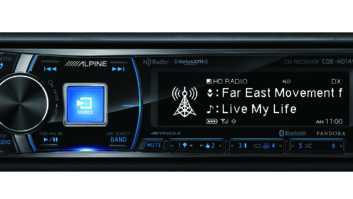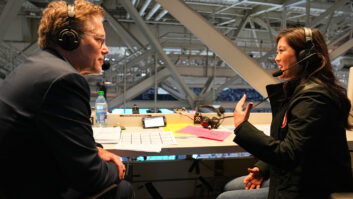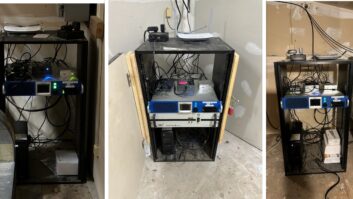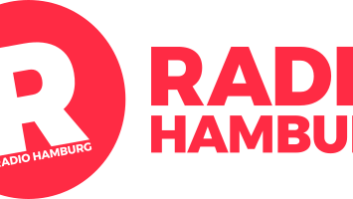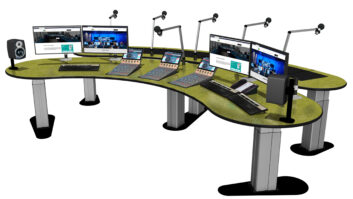Suppliers, Owners Scrutinize ‘Preferred-Vendor’ Trend
Using its 1,200-station clout, Clear Channel has approached selected broadcast equipment manufacturers to expand the use of direct purchasing, in product categories traditionally sold through distributors and dealers.
The development is noteworthy in an industry that has seen two years of sluggish sales and that long has wondered how radio consolidation would affect traditional selling models.
Clear Channel, radio’s largest owner both in revenue and stations owned, says it must adopt this change to get the most value for its shareholders.
Meanwhile, equipment dealers and distributors, who stand to lose potential business when major clients go direct to the factory, eye this development with trepidation, fear and, in some cases, anger.
Practical questions
Some product categories, like transmitters and automation systems, have been sold direct for years. But in general, equipment manufacturers and resellers have enjoyed a symbiotic relationship. If more radio groups seek to buy direct, what will be the role of dealers and distributors in the future?
Most observers with ties to the equipment industry agree that manufacturers face a difficult choice in the current environment. Several sources contacted by Radio World said any manufacturer approached with a direct-buy request is caught between saying no, and letting business go to a competitor, or saying yes, and risking the alienation of existing dealers – relationships that may have been built up over many years.
“Everyone has trended toward the most efficient way to get to the customer,” said one source who conducts business with both manufacturers and distributors. “It’s about efficiency. Distributors are no longer the most efficient method for overall sales.”
Larger orders from big groups are, by their nature, more efficient, these sources say, and big radio groups now can get what they need from manufacturers alone. In this school of thought, distributors add little value to such transactions.
Dealers historically reply that they provide significant value, including services such as financial credit, third-party expertise, diversity of inventory, toll-free lines and installation. Further, they say, equipment decisions often are the result of a dealer’s hard work in promoting a given product.
Preferred vendors
Clear Channel believes it is in a unique position to buy direct. Radio Vice President for Engineering Services Jeff Littlejohn said it makes sense in categories beyond transmitters. He said the group eventually plans to list six to 10 companies as “preferred vendors.”
On the list so far are Harris Corp. for transmitters, Telos Systems for processors and phone systems and Andrew Corp. for coaxial cable, STL antennas and cable pressurization equipment.
Clear Channel did not disclose exactly what the “preferred” designation means, other than to say all of its purchases in that category would be through that vendor except in emergencies.
“We can guarantee those purchases,” said Littlejohn. Selling direct, he said, enables these manufacturers to plan their material purchases and factory needs better, because they will know ahead of time that they have an order of a certain size. Littlejohn said direct buys save the manufacturer and Clear Channel money, although as a company shareholder, he said, he could not say specifically what the savings would be.
“We’re uniquely set up because of our capital spending and tracking software to do this,” he said.
Clear Channel plans its spending for new equipment more than a year in advance. Its planning software enables engineers to manage their purchases. The stored data includes product prices so employees don’t need to spend time researching that information over and over. The company maps out, down to the specific make and model number, every piece of equipment it will need for every project, Littlejohn said.
Such planning is important, he said. Radio companies were at one time evaluated on earnings before interest and taxes; now amortization and depreciation are counted differently. Now, if stations capitalize something, it hits their operating budget on a yearly basis, he said.
For example, the 10-year life of any piece of equipment is charged against the operating budget every year.
“Our GMs have to look at depreciation … and make sure we get value for that and hit our targets, ” he said.
He said Clear Channel will still do business with distributors or so-called box houses, but the amount of money the company would spend would be less.
“For the most part, I’m going to be buying the same amount of product, but spending less money on it.”
Andrew Broadcast/Satellite Accounts Manager James Heard said the manufacturer had been making products for other companies which in turn sold them to Clear Channel, so this was a better deal.
“I think Clear Channel chose to pick vendors of a certain size and history. … If I ship to them and someone else bills them, it doesn’t save them a lot (of money).”
He said the Clear Channel deal allows Andrew to lower its costs. For example, the deal states the months in which the radio group wants its product, he said, allowing Andrew to plan resource and staff needs.
“In this environment, it’s good to have secure business. For me to guarantee some slots in our factory, it’s definitely worth giving up some price to have them come direct.”
Such an order, he said, also involves one-time administrative costs, vs. repeated administrative costs incurred with several smaller orders. Broadcast products make up roughly 6 percent of Andrew’s business.
Bearing the costs
Distributors argue that any manufacturer that sells direct must pass along or absorb added costs associated with product support.
Tim Schwieger, president of dealer Broadcast Supply Worldwide, said, “Somebody has to bear the costs of selling and servicing the end user.” It’s difficult to do both, he said, referring to “overhead that hides itself but eventually comes out.”
BSW distributes Telos/Omnia and Andrew products. He said there is no confrontation between BSW and Clear Channel; all the major groups have tremendous buying clout and are getting good deals, he said.
Bob Cauthen, president of dealer SCMS, sees this trend as temporary. Years ago, he said, network radio stations tried it; but by the time they hired the personnel to handle it and paid for the extra overhead, “they didn’t save any money.”
He said manufacturers generally aren’t as flexible as dealers about deliveries and payment terms, and balk at handling returns or demos.
Some distributors, who did not wished to be named, said it would be hard for Telos to manage the contract and not pass on extra costs to end users.
Sensitive
The issue is a sensitive one, involving as it does the relationships among makers, resellers and users.
Telos/Omnia, for example, is taking heat from dealers over the agreement. Company executives said several have discussed the Clear Channel direct buy agreement with them.
Telos Systems Managing Director Denny Sanders said the arrangement is specific to Clear Channel and includes provisions for purchase and product support.
“Clear Channel told us they wanted a direct relationship. They said it a lot. We listened. Who are we to force a valued customer to do something they don’t want?
“The most important thing is this: The best outcome for our clients happens when they get what they want. Not what we want or what our dealers want – although it certainly is best when these are aligned.”
In addition, Sanders said the factory already must bear the burden of product support.
“Customers almost always come to us for assistance on gear they own, not to their dealer.” He said in the case of the Zephyr codec, “Our support guys have units in front of them and connected to ISDN lines, so they can work with people who have Zephyrs at the other end by calling them up, if need be.”
The contract is for processors, codecs and telephony equipment.
He said Telos/Omnia has a large customer support team in place and would not incur extra costs. But the company continues to value its dealer support network, he said.
“This is a partnership, and will remain so. We certainly demo product, visit radio stations, send out loaners, suggest solutions etc. Our dealers are involved with this kind of activity also.”
Harris Broadcast is both a manufacturer and a distributor, and handles Telos and Andrew products.
Virginia Lee Williams, director of North American sales for radio, said distributors definitely have a continuing role given the amount of equipment in stations. She believes the number of manufacturers with the internal support necessary to manage such a large contract is limited.
“I don’t see this as a sign (that) distributors are going away.” She also cautioned against blowing the issue out of proportion.
Wheatstone President Gary Snow praised the direct buy concept in general.
“When they’re doing a rebuild, they need consoles, wiring … It’s all interrelated. We specialize in all those pieces and integrating them, by providing the engineering support they’ll need for that. Dealing directly with a client is best in situations like that.”
Snow said Wheatstone products are sold directly to clients, while the company’s Audioarts line is sold through distributors. He would not say whether his company is on Clear Channel’s preferred-vendor list.
He said direct buying might not always be the best solution for a station buying off a preferred-vendor list.
“We know of situations where groups have made buy agreements with big companies, only to find out other people may have gotten better prices regardless of the agreements.”
Other station engineering sources agreed.
Planning
At least some group engineers say they could not match Clear Channel’s prep time for planning purchases and have found central buying for every purchase too restrictive.
One engineer in charge of regional equipment purchases for a large group said a long lead time may actually close the door to consideration of new technology.
“I think we saved $15,000 one time when new technology came out that wasn’t available when we planned the project.”
He’s also not sure smaller radio groups can attract manufacturers’ attention as well.
“There’s a service associated with an order – like making sure your order is correct. If I ask for 200 feet of transmission line and all of a sudden two reels of cable show up, the orchestration of getting that back to the vendor” becomes more complicated in a direct deal, he said; the station spends more time straightening out the order.
“When BSW calls up, they’ll get more attention from the manufacturer because they’ve bought, say, 400 (products). They’ll take ownership of the problem.”
Saving money is important, he said, but so is getting a project done on time. “I don’t know many projects where speed is not.”
Sterling Davis, vice president of engineering for Cox Broadcasting, sees advantages to buying equipment as a group, and Cox tries to do this where it can. But, he said, planning purchases far in advance can be impractical because of changes needed later. Cox tries to give its engineers more purchasing control at the local level.
At that local level, Keith Tela, CE for Cox Radio in Birmingham, Ala., said, “We purchase a lot through Broadcasters General Store and get fair pricing.” He praised BGS for lending him equipment to try and said he wasn’t sure planning that far out would work except for a turnkey situation.





